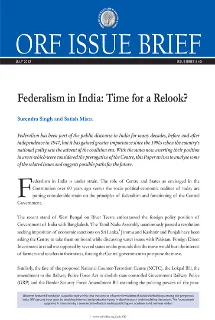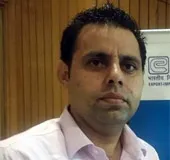Federalism in India is under strain. The role of Centre and States as envisaged in the Constitution over 60 years ago versus the socio-political-economic realities of today are putting considerable strain on the principles of federalism and functioning of the Central Government.
Federalism has gained greater importance since the 1990s when the country’s national polity saw the advent of the coalition era. With the states now asserting their position in areas which were considered the prerogative of the Centre, this Paper strives to analyse some of the related issues and suggests possible paths for the future.
The recent stand of West Bengal on River Teesta embarrassed the foreign policy position of Government of India with Bangladesh. The Tamil Nadu Assembly unanimously passed a resolution seeking imposition of economic sanctions on Sri Lanka. Jammu and Kashmir and Punjab have been asking the Centre to take them on board while discussing water issues with Pakistan. Foreign Direct Investment in retail was opposed by several states on the grounds that the move would hurt the interest of farmers and retailers in their states, forcing the Central government to postpone the move.
Similarly, the fate of the proposed National Counter-Terrorism Centre (NCTC), the Lokpal Bill, the amendment to the Railway Police Force Act to abolish state controlled Government Railway Police (GRP) and the Border Security Force Amendment Bill extending the policing powers of the paramilitary forces remain uncertain with fierce opposition from regional parties and affected states with strong arguments around the interpretation of federalism in the Indian Constitution.
The views expressed above belong to the author(s). ORF research and analyses now available on Telegram! Click here to access our curated content — blogs, longforms and interviews.

 PDF Download
PDF Download



 PREV
PREV



